Biotechnology
Biotechnology is defined as a set of techniques in which living cells and molecules derived from an organism such as enzymes are used to obtain or modify a product or process.
Biotechnology applied to the plastics sector combines science and technology to develop sustainable solutions. We use microorganisms and enzymes to degrade and recycle plastics, thus reducing environmental pollution and promoting a cleaner, healthier future.
Biotechnology is therefore applicable to a wide range of sectors and industries, with the most obvious examples of application being the food industry and pharmaceutical industry for the production of food and antibiotics, respectively. In recent years, however, biotechnology has been making inroads into other sectors such as the plastics industry. There are now several applications in which the use of microorganisms and enzymes is key in this industry. These uses mainly focus on achieving circularity and guaranteeing the safety of plastic materials.
Different technologies and strategies are available to achieve these objectives:
Fermentation
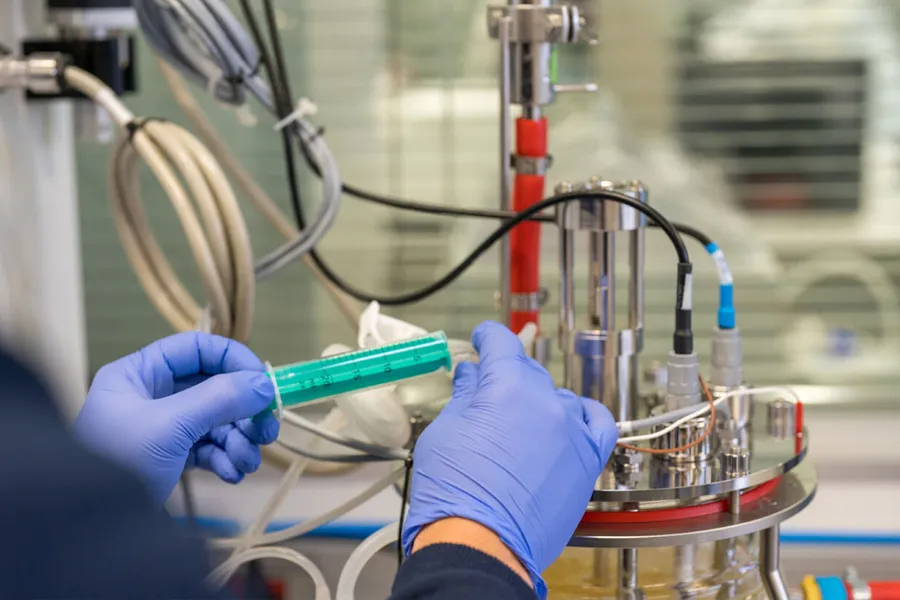
This technology enables the production of valuable molecules through the valorization of renewable resources and/or organic waste using microorganisms. In this way, monomers such as lactic acid can be obtained and chemically polymerized into biobased and compostable polymers like PLA. Beyond the plastics sector, advances in this field can also be applied to industries such as cosmetics, food, agriculture, and pharmaceuticals. The results depend on the target compound, the type of microorganism used, and the design of the fermentation process.
At AIMPLAS, we have the knowledge and capabilities to design, optimize, and scale up all types of fermentation processes.
Enzymatic recycling
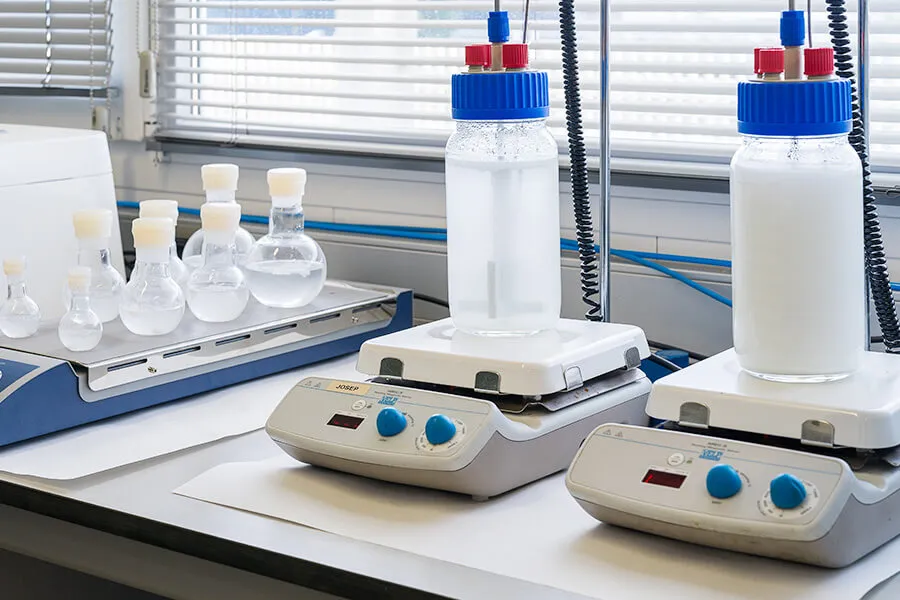
This technology is based on the use of microorganisms and their hydrolytic enzymes to break down polymer chains. Through enzymatic recycling, it is possible to achieve partial biodegradation, recovering the monomers and oligomers of each specific polymer under much milder conditions than those required in other chemical recycling methods. At AIMPLAS, we work on identifying new microorganisms capable of degrading plastics and isolate the responsible enzymes for their production and application.
Bacterial Nanocellulose
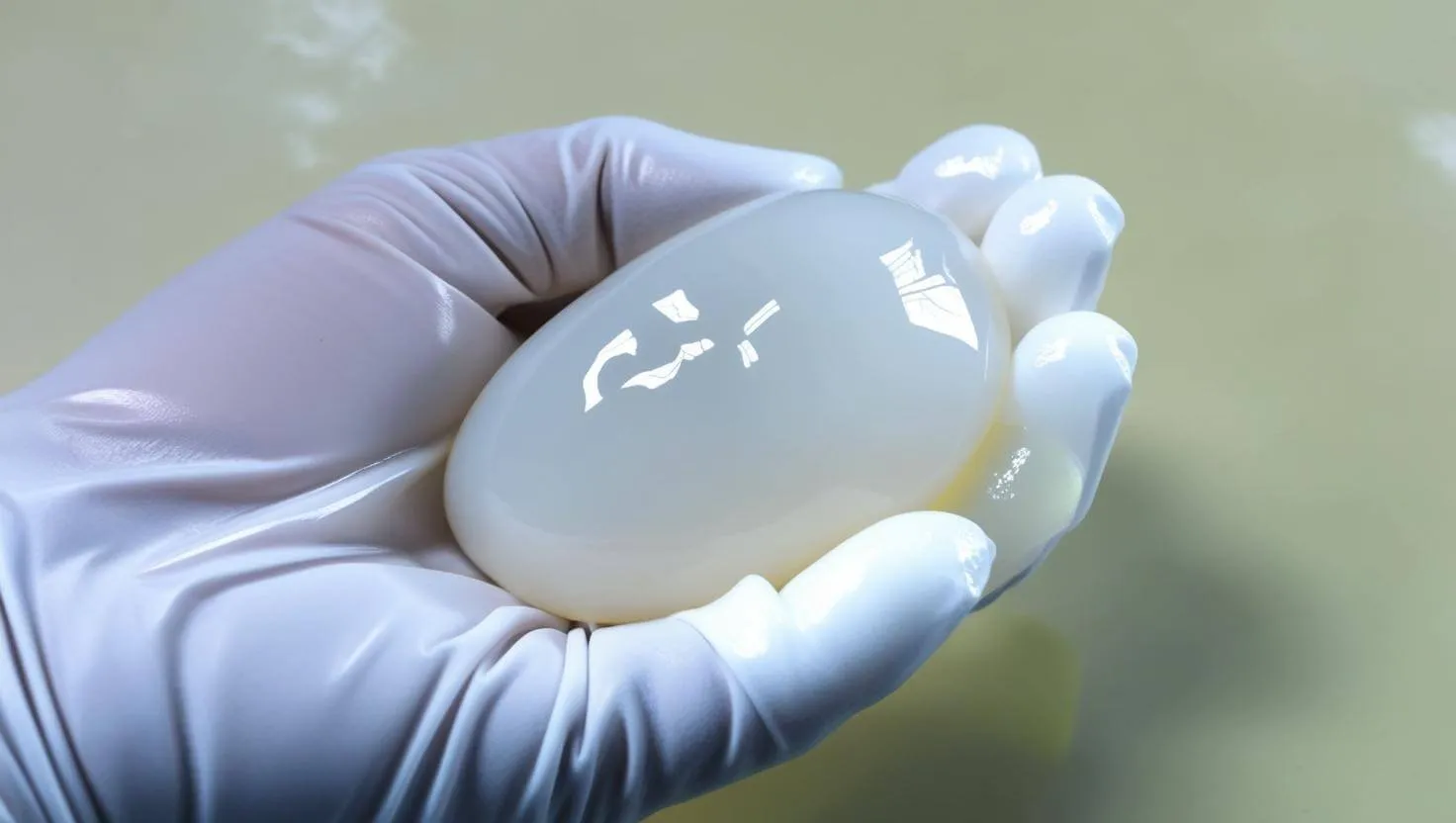
Using organic waste and microbial strains isolated by AIMPLAS, we are able to produce bacterial nanocellulose – a natural material that, unlike plant-based cellulose, does not require wood or agricultural crops. The unique properties of this material make it suitable for a wide range of applications: as an ingredient in cosmetic products, as a compostable material for packaging, or in the manufacture of textiles.
Fungal Mycelium-Based Materials
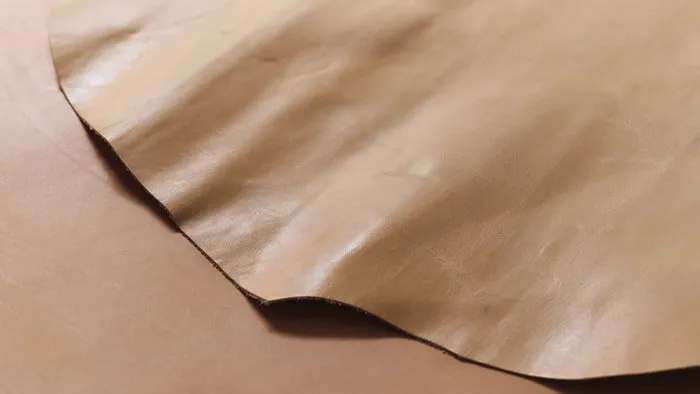
At AIMPLAS, we develop sustainable materials from mycelium, the vegetative structure of fungi. Through controlled cultivation using organic waste, we obtain biomaterials with leather-like properties that are fully biodegradable. These materials have applications in sectors such as textiles, interior design, and packaging, in a technology that merges biotechnology with circular economy principles.
Biohydrometallurgy
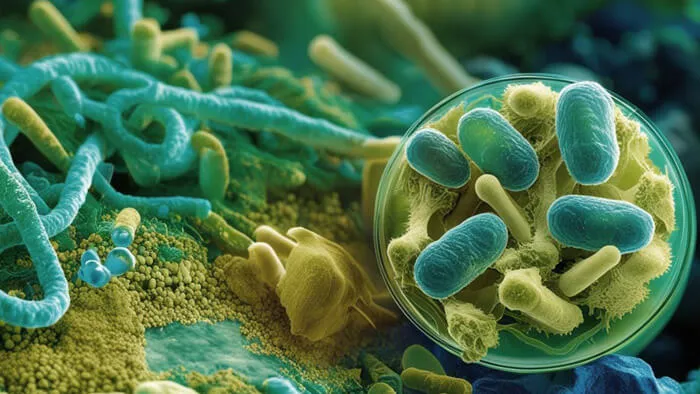
At AIMPLAS, we explore biohydrometallurgy as an innovative and sustainable technology for recovering metals and critical raw materials from waste electrical and electronic equipment (WEEE). This technique harnesses microorganisms capable of extracting metals, such as copper, lithium, or cobalt, through natural processes. This research line opens up new, more sustainable pathways for waste valorization and the recovery of high-value materials.
Biodegradation
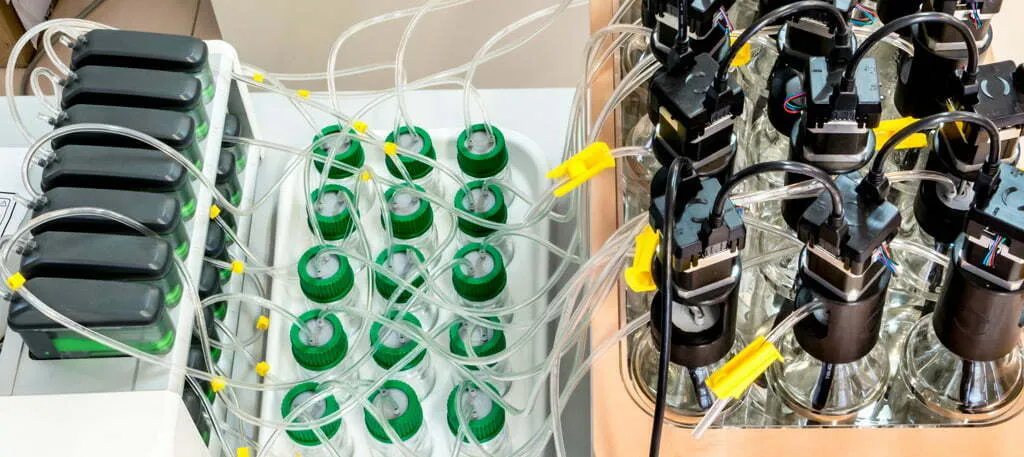
Biodegradation is the process by which microorganisms break down polymer chains into simpler products such as CO₂ (and CH₄ under anaerobic conditions), H₂O, salts, and biomass. This process can occur in various environments, which is why different standards exist for evaluating plastic biodegradation under different environmental conditions. One of the challenges in assessing biodegradability is the long testing duration. To support the industry in developing new biodegradable plastic materials, AIMPLAS has developed a biodegradation simulation tool based on initial test data. This tool shortens the testing period, optimizing timelines for material development.
Agriculture
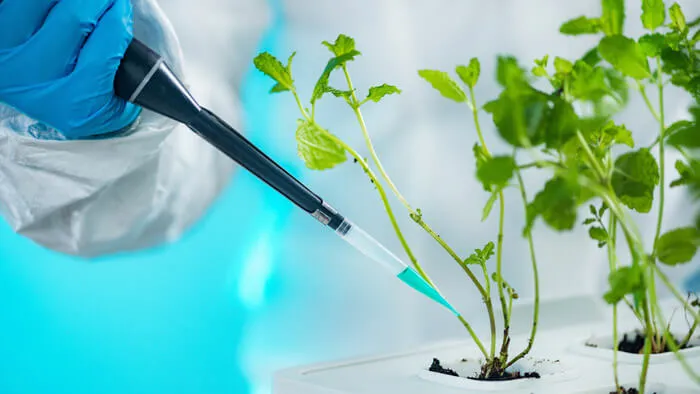
At AIMPLAS, we apply biotechnology to promote more sustainable agriculture by developing microorganism-based solutions that enhance soil health, stimulate crop growth, and support biological pest control. We work on identifying beneficial microorganisms for agricultural use and testing them in the lab to provide natural alternatives to chemical products.
In vitro tests
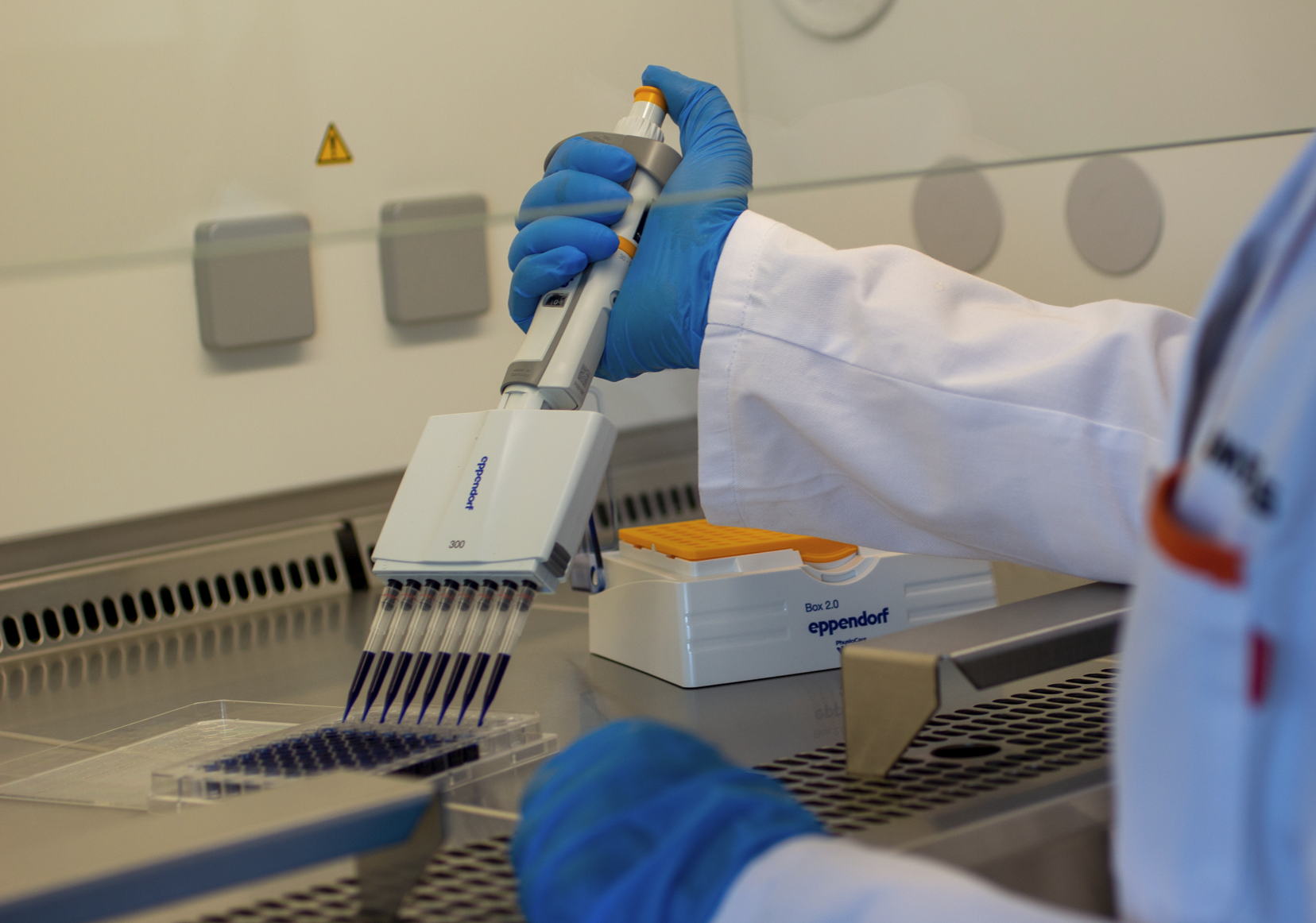
In vitro tests are performed without the use of a living organism. They are usually carried out using isolated tissues or cells. These tests are very useful in studies and for determining the toxicity of certain substances such as non-intentionally added substances (NIAS). AIMPLAS has developed a method to determine the toxicity of these substances associated with plastic materials. Cytotoxicity and genotoxicity are determined using different techniques.
Antimicrobial testing
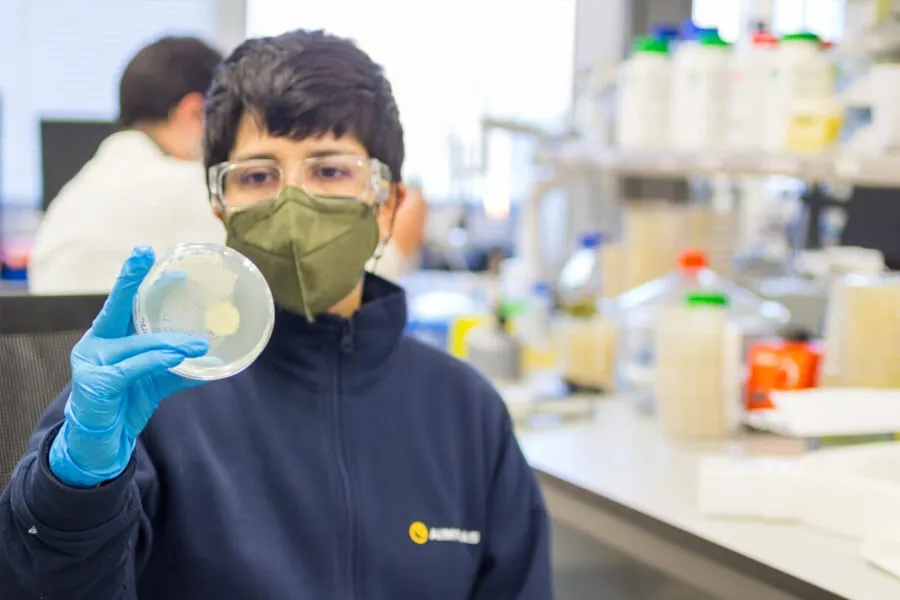
Antimicrobial testing evaluates and determines the effectiveness of different antimicrobial agents on plastic surfaces. These tests are essential in the research and development of products that need to resist microbial contamination, such as food packaging, medical devices, or hospital surfaces.
Biotechnology offers many opportunities within the circular economy to recover plastic waste through enzymatic recycling and organic waste for the production of biomonomers, bioplastics and biofuels using different biological processes such as fermentation, thus giving added value to waste with a low potential for recovery.
At the same time, computational biology and modelling biology systems make it possible to test the biodegradation of plastic materials over shorter periods of time. In vitro tests ensure the safety of plastic materials throughout their lifetime. Biotechnology includes a number of techniques that have a positive impact on the plastics industry by ensuring material safety and promoting the development of renewable, sustainable materials.
